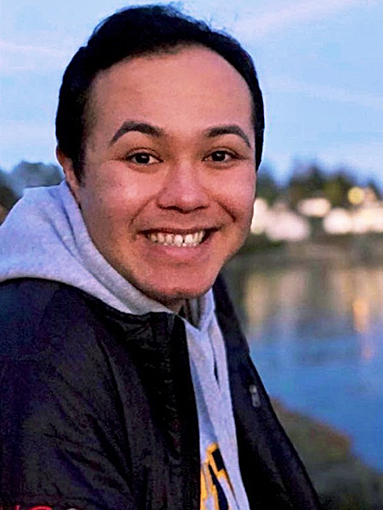Indigenous Initiatives in the BC Public Service
Strengthening the representation and inclusion of Indigenous employees in the BC Public Service is important to our corporate equity, diversity and inclusion strategy. As representatives of the Crown, B.C. government employees have a responsibility to advance principles of reconciliation in a way that honors and respects the unique constitutional and legal status of First Nations, Métis, and Inuit peoples.
Reconciliation is everybody’s responsibility and all ministries have been mandated to remain focused on creating opportunities for Indigenous peoples to be full partners in B.C.’s economy and providing a clear and sustainable path for everyone to work toward lasting and meaningful reconciliation. There are several corporate-wide initiatives led by the BC Public Service Agency (PSA) that support this mandate.
For more information, please visit our homepage, the Equity, Diversity & Inclusion Resource Centre – which includes information about the Equity, Diversity & Inclusion Strategy, Accessibility, Learning and Resources, Governance and Community.
On this page
- Indigenous Leadership and Mentorship Program
- House of Indigenous Learning
- Acknowledging a territory
- Indigenous applicant advisory service
- Indigenous Youth Internship Program
- Indigenous relations behavioural competencies
- Partnering with Indigenous peoples
- Procurement of Indigenous contractors
Indigenous Leadership and Mentorship Program
What does the program offer?
Monthly cohort learning opportunities on topics that may include:
- Orientation
- Coaching for leaders
- Elders teaching on leadership
- Indigenous leadership panel
- Breakout discussions
- Virtual wrap up
- New to the public service
- Aspiring/growing leaders
- Experienced leaders
Who can apply?
For protégés, we are looking for Indigenous BC Public Service employees with specific personal or professional goals who believe that the guidance and help of a mentor can help them achieve their goals. We are seeking individuals who are committed to do their best, are willing to work hard, prepared to engage in a mentoring relationship with their mentors and accept responsibility for their own success.
For mentors, we are seeking BC Public Service employees who have strong active listening skills and empathy, can share honest and constructive feedback, are willing and keen to share relevant information and are invested in the growth and development of others. For this program, it will be highly important for mentors to have a deep understanding of Indigenous and settler histories in BC and Canada, allyship, reconciliation and/or decolonization.
The program will accept up to 20 pairs of mentors and protégés. Best efforts will be made to ensure representation from across ministries and within each stream. We strongly encourage employees to seek endorsement from their supervisors before applying.
To apply, please fill out the appropriate form and return via email to IndigenousInitiatives@gov.bc.ca:
Questions?
Please contact the Acting Director of Equity Programs if you have further questions.
House of Indigenous Learning
In response to Call 57 of the Truth and Reconciliation Commission’s Calls to Action, (PDF, 299KB), the House of Indigenous Learning (IDIR restricted) was formed in 2018 and is part of the PSA’s Equity, Diversity & Inclusion branch.
It was created to educate B.C. public servants on the history of Indigenous peoples, including the history and legacy of residential schools, the Declaration on the Rights of Indigenous Peoples and much more.
The House offers:
- In-person and online learning
- Webinars
- Presentations
- Workshops
- Knowledge circles
- Cohort learning
- Tailored learning opportunities
Acknowledging a territory
It’s increasingly common across Canada for territorial acknowledgements (IDIR restricted) to be made at the beginning of meetings.
For many B.C. government employees, a territory acknowledgement is an act of reconciliation and the protocol has been a long-standing practice for Indigenous peoples.
Additional resources on this topic are available on Compass (IDIR restricted).
Indigenous Applicant Advisory Service
First Nations (status or non-status), Métis or Inuit job seekers looking for work in the BC Public Service can request advice from the Indigenous Applicant Advisory Service.
The service was developed as one of 15 commitments in the provincial 2017 Diversity and Inclusion Three-Year Action Plan (PDF, 849KB).
Indigenous Youth Internship Program
Since 2007, nearly 300 interns have been hired through the award-winning Indigenous Youth Internship Program.
Over a 12-month period, Indigenous youth ages 19 to 29 gain paid work experience in ministry placements and Indigenous organizations.
Alumni of the program have gone on to successful careers, including:
- Teachers
- Doctors
- Social workers
- Lawyers
- Public servants
- Entrepreneurs
- Elected leaders
Indigenous relations behavioural competencies
The Indigenous relations behavioural competencies (IRBCs) were developed in consultation with Indigenous communities, Indigenous public servants and human resource professionals working in the public service.
A guidebook was created to support the use of IRBCs and the BC Public Service promotes the use of 4 IRBCs that are beneficial to all employees:
- Self-discovery and awareness
- Sustained learning and development
- Cultural agility
- Change leadership
Partnering with Indigenous Peoples
The PSA is working in partnership with all ministries and Indigenous organizations to build a strong foundation to ensure public service professionals are capable and competent to partner with Indigenous Peoples and work toward lasting and meaningful reconciliation.
This work is guided by the following key documents:
- 2015 BC: First Nations Proposed Commitment Document (PDF, 641KB)
- Calls for Justice (PDF, 643KB) from the Final Report of the National Inquiry into Missing and Murdered Indigenous Women and Girls
- Concrete Actions: Transforming Laws, Policies, Processes and Structures (PDF, 520KB)
- Declaration on the Rights of Indigenous Peoples Act
- Declaration on the Rights of Indigenous Peoples Act Action Plan
- Draft Principles that Guide the Province of BC’s Relationship with Indigenous Peoples (PDF, 137KB)
- Shared Vision, Guiding Principles, Goals and Objectives (PDF, 520KB)
- Truth and Reconciliation Commission Calls to Action (PDF, 299KB)
Procurement of Indigenous contractors
Additional support for learning is available through the learning and development services supply arrangement where you can access Indigenous vendors.
Pricing information is accessible to people with a B.C. government IDIR or a BCeID that's registered with the Procurement Services Branch.
To find an Indigenous learning development or delivery consultant, download the spreadsheet from Learning and Development Services > Pricing and Supplier Contact Information > Development.
The consultants can:
- Facilitate in-house workshops or courses
- Deliver training
- Engage a learning group


